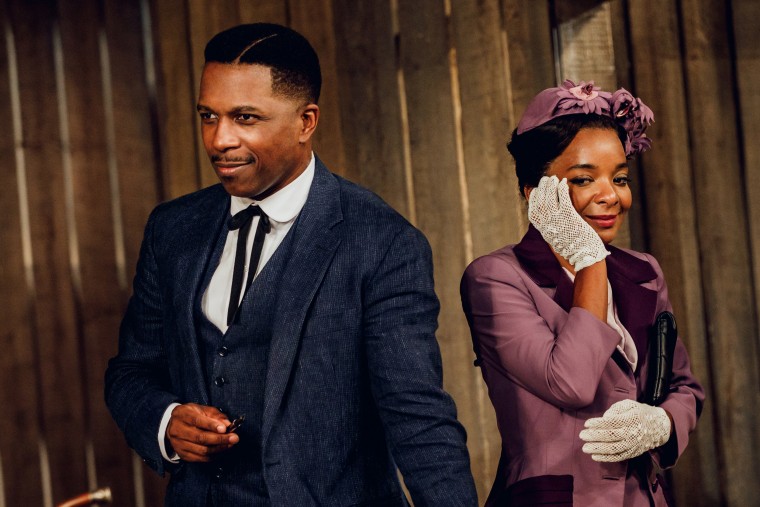“Purlie Victorious” may not be a musical, but to its lead star, Leslie Odom Jr., the words of this six-decade-old play are melodic.
Odom, best known on Broadway for his Tony-winning performance as Aaron Burr in “Hamilton,” said the musicality of “Purlie Victorious: A Romp Through the Non-Confederate Cotton Patch” is something he and his fellow actors continue to uncover every night at New York City’s Music Box Theater.
“There is music here,” Odom, 42, said in a phone interview. “It’s a great joy when it feels like we’ve hit our stride and we’re really playing the same song.”
When the show first opened on Broadway in 1961, it starred Ossie Davis, who also penned the text, and his wife, the acting legend Ruby Dee. The revival starring Odom is the first time the show returns to a New York stage since its debut.

Despite the time that has passed between Odom’s first encountering the play as a high school actor and now acting and producing it on Broadway, the text continues to surprise him with its nuances.
“I’ve read this play 35 times at this point, and in rehearsal I was discovering jokes that I missed on the page,” he said. “To hear another actor read them aloud, it’s like, ‘Oh, my God, look! That’s a double-entendre.’”
Just as the play continues to reveal itself to him, Odom hopes audiences can find meanings in this stage production that they might not find on the page. “You have to see this production to understand the full meaning of Mr. Davis’ writing,” he said.
The play, set in the Jim Crow era, follows Purlie Victorious Judson, a preacher, as he returns to the Georgia plantation where he grew up. There, he hopes to recoup the money his family is owed from the land’s current owner, Ol’ Cap’n Cotchipee.
At the heart of Davis’ play, Odom said, is a very American story about liberation, not only liberation of a people, but also the self-liberation that must come first. That’s why he believes Davis’ words, like Shakespeare’s or Moliere’s, register regardless of the moment in time when the audience experiences them.
“Truth doesn’t go out of style,” he said. Davis, who died in 2005, spoke his truth about liberation from the stage every night, and the words still hold deep meaning, Odom added. “It was true in 1961, it would have been true in 1906, and it would have been true in 1861.”
Source: | This article originally belongs to Nbcnews.com










